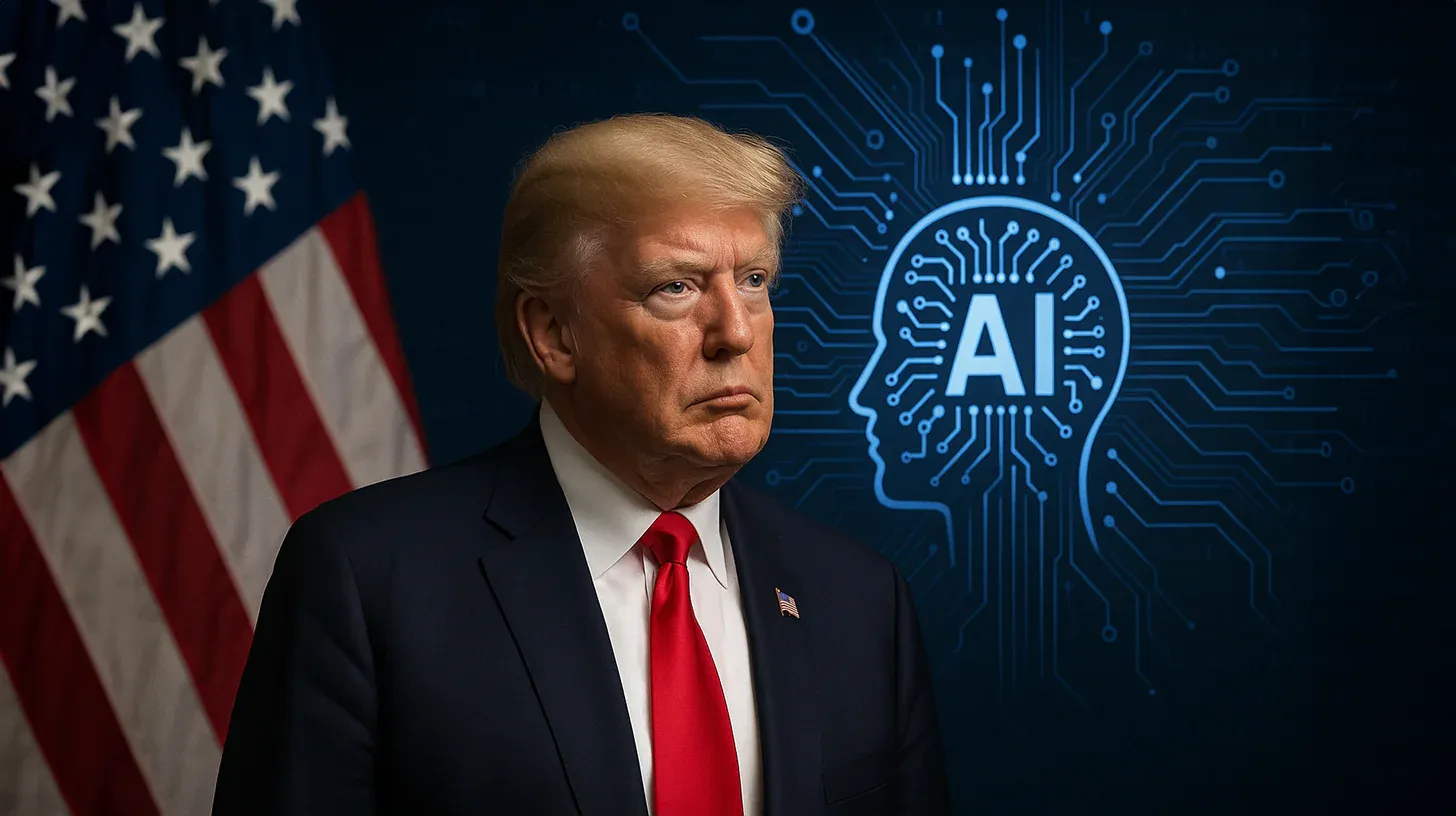Discovered on GitHub's public repositories, the leak offers an unprecedented glimpse into how the Biden and Trump administrations intended to coordinate AI implementation throughout the federal government.
The Accidental Revelation
The exposure occurred when government contractors working on the project inadvertently pushed sensitive configuration files and project documentation to a public GitHub repository. And, well... when it's up there - it's out there.
The leaked materials included architectural plans, internal communications, and even strategic roadmaps for what appears to be the most comprehensive federal AI initiative to date.
According to the leaked documents, AI.gov is positioned as a "one-stop destination for federal agencies seeking to implement, scale, and govern artificial intelligence solutions." The platform aims to standardize AI deployment across departments while ensuring compliance with emerging federal AI governance frameworks. Essentially a precedent setting new department that would have vast power to impact daily lives immediately,
What the Leaked Documents Reveal
Comprehensive AI Toolkit
The leaked specifications outline AI.gov as more than just an informational website. The platform is designed to include:
- Pre-approved AI vendor marketplace featuring vetted solutions for government use.
- Standardized procurement processes to streamline AI acquisition across agencies.
- Training modules for federal employees on AI implementation and ethics
- Compliance dashboards to track AI governance requirements
- Inter-agency collaboration tools for sharing AI best practices
Timeline and Budget Implications
Internal project timelines suggest AI.gov was scheduled for a soft launch in Q2 2024, with full deployment expected by the end of that fiscal year. While specific budget figures weren't disclosed in the leak, references to "significant resource allocation" and mentions of multi-million dollar contracts indicate substantial government investment in the initiative. This suggests that AI.gov as a project has had a stealth launch, however the actual ai.gov address redirects to the white house website.
Strategic Significance for Federal AI Policy
The AI.gov initiative represents a troubling evolution in federal technology policy. Unlike previous government technology rollouts that focused on individual agency needs, this platform appears designed to create a unified federal AI ecosystem, with the associated risks, and dangers - crucially without any substantial national public debate.
Addressing Current Challenges
Federal agencies also currently face numerous obstacles in AI adoption:
- Fragmented procurement processes that slow technology acquisition
- Inconsistent security standards across different departments
- Limited technical expertise in emerging AI technologies
- Unclear governance frameworks for AI ethics and compliance
AI.gov appears specifically designed to address these systemic issues through centralized coordination and standardized processes. However the range of budget types and diversity of situations and pressures on agencies may mean standardization of AI systems will lead to a reduction in effectiveness, at least until a few years from now when it will have bedded in.
Security and Privacy Implications
The accidental leak itself raises important questions about cybersecurity practices in government technology projects. If sensitive project information can be inadvertently exposed during development, it highlights potential vulnerabilities in how the government manages confidential initiatives. This would not be the first time even in this administration. The publication of the roadmap, architecture, and even budgetary items related to AI strategy at best can be characterised as a blunder.
More broadly, the AI.gov platform will likely handle extremely sensitive federal data and coordinate AI implementations across national security agencies. The leaked documents suggest robust security measures are planned, including multi-factor authentication, encrypted data transmission, and regular security audits. However, like Nuclear, no matter how good the planning, you don't want sloppy people anywhere near AI. For reasons far too numerous and obvious to list here.
Industry Impact and Vendor Opportunities
As for the private sector, AI.gov has them salivating. The corner AI dealer is now picturing rolling up an AI Food Truck to the White House to sell AI solutions to the government, potentially worth billions in federal contracts at a time.
On the bright side, the leaked vendor evaluation criteria suggest stringent requirements around:
- Security clearances for key personnel
- Domestic data processing requirements
- Algorithmic transparency standards
- Bias testing and mitigation protocols
Looking Ahead: Implications for Federal AI Leadership
The AI.gov initiative signals the Trump administration's commitment to maintaining a perceived edge in artificial intelligence while ensuring 'responsible' government AI use. Basically specifying what they can get away with without losing too much immediate political capital. By creating centralized coordination mechanisms, the platform wants to control federal AI adoption significantly, and as soon as possible.
However, successful implementation will depend on several critical factors:
- Cross-agency cooperation and buy-in from department leadership
- Adequate funding for ongoing platform development and maintenance
- Skilled workforce development to support increased AI implementation
- Public trust in government AI use and data handling
Conclusion: A Watershed Moment for Government Technology
While the GitHub leak was undoubtedly an embarrassing security oversight, it has revealed what may be the most ambitious federal technology initiative in decades. AI.gov represents a fundamental shift toward coordinated, strategic AI adoption across the federal government.
The success or failure of this platform could determine whether the United States maintains its competitive edge in artificial intelligence while setting global standards for responsible government AI use. As federal agencies increasingly rely on AI for everything from fraud detection to national security analysis, AI.gov may become the crucial infrastructure that enables America's digital government transformation. Or it may be nothing like this, we do know the AI genie is finally out of the US government bag.
For now, government officials have remained tight-lipped about the leak, but the accidental revelation has already sparked intense interest from technology vendors, policy experts, and cybersecurity professionals watching how the administration will respond to this latest episode of 'unintended transparency'.
